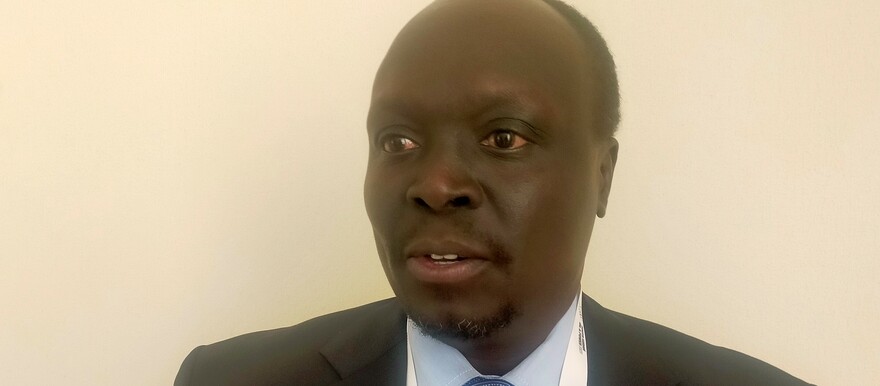Bentiu oil refinery plans to export refined products by August

Bentiu Refinery could export refined petroleum products to the East African region by August of this year, according to the refinery’s owner SNP Group.
NSP is a joint venture between South Sudan’s Nile Petroleum Corporation and Russia’s Safinat.
Located in Unity State, the refinery has faced several challenges in becoming operational, including flooding, COVID-19 and technical failures.
“[The refinery] is operational and in good shape. We have been providing products to Sudan. With the current situation in our neighbouring country, we are looking to the East African region. We have already been contacted by a number of companies in the region, as well as the Congo,” said David Galla, Vice President of SNP Group, at the South Sudan Oil & Power (SSOP) conference on Friday.
“By August or September, the product will be ready to be shipped across the region,” he added.
This milestone would be significant for South Sudan, who despite having the third-largest oil reserves in sub-Saharan Africa, has suffered from limited refining capacity to date and imports the majority of its local refined oil demand.
“The viability of these plans is supported by the high quality of production from the refinery, of which “70% has close to zero sulfur content. This is very rare,” noted Galla.
He pointed out that SNP Group is also seeking to build an internal market for its low-sulfur, heavy fuel oil, which could be used to generate power, stimulate industry and reduce local costs of power consumption.
The energy event in Juba is organised by Energy Capital & Power in partnership with the Ministry of Petroleum, South Sudan to unite the country’s energy stakeholders with global investors to discuss opportunities within the burgeoning industry.
South Sudan struggling to maintain oil exports

Awow Daniel Chuong, a technical advisor at the Ministry of Petroleum. (File photo)
JUBA - 17 JUN 2023
South Sudan is battling to secure critical oil equipment and supplies for production due to the ongoing war in Sudan, a senior official said.
South Sudan sends its crude oil to Port Sudan on the Red Sea coast of its northern neighbour via a 1600-kilometre pipeline.
Oil accounts for up to 90% of government revenues.
Speaking to Radio Tamazuj during the Oil and Power Conference in Juba on Friday, Awow Daniel Chuong, a technical advisor at the Ministry of Petroleum, said the war in Sudan is affecting the supply of essential materials required for oil production.
“Oil cannot run without the critical materials that are required for production because the oil route that we used to rely on, especially in the oilfields, is the route of Port Sudan, and now the crisis in Sudan is not making things simple today, things are very difficult,” Daniel said.
Daniel said the government is considering an alternative oil export route through Ethiopia to Djibouti. In September 2022, Juba bought land in Djibouti to build a new export terminal.
“Djibouti route is one of the routes that has already been explored a long time ago but today, people are working very hard so that this route is opened so that we can have an alternative route. The route of Sudan will continue to be there, but also still we need an alternative route, the route of Kenya is there, but also in terms of costs, it can be very difficult,” he said.
The ethnical adviser announced the country currently produces 170,000 barrels of oil per day.
“Oil production is picking up now. It dropped drastically to less than 120,000 barrels per day, but it is picking up. It is 170,000 barrels per day now, but again we are being constrained by the crisis in Sudan, which will make it drop again because of logistics,” he said.
Peter Biar Ajak, a South Sudanese scholar in the Belfer Centre's International Security Programme in the US, recently told Al Jazeera that the country is concerned that if the fighting continues the pipeline could be damaged.

Awow Daniel Chuong, a technical advisor at the Ministry of Petroleum. (File photo)
JUBA - 17 JUN 2023
South Sudan is battling to secure critical oil equipment and supplies for production due to the ongoing war in Sudan, a senior official said.
South Sudan sends its crude oil to Port Sudan on the Red Sea coast of its northern neighbour via a 1600-kilometre pipeline.
Oil accounts for up to 90% of government revenues.
Speaking to Radio Tamazuj during the Oil and Power Conference in Juba on Friday, Awow Daniel Chuong, a technical advisor at the Ministry of Petroleum, said the war in Sudan is affecting the supply of essential materials required for oil production.
“Oil cannot run without the critical materials that are required for production because the oil route that we used to rely on, especially in the oilfields, is the route of Port Sudan, and now the crisis in Sudan is not making things simple today, things are very difficult,” Daniel said.
Daniel said the government is considering an alternative oil export route through Ethiopia to Djibouti. In September 2022, Juba bought land in Djibouti to build a new export terminal.
“Djibouti route is one of the routes that has already been explored a long time ago but today, people are working very hard so that this route is opened so that we can have an alternative route. The route of Sudan will continue to be there, but also still we need an alternative route, the route of Kenya is there, but also in terms of costs, it can be very difficult,” he said.
The ethnical adviser announced the country currently produces 170,000 barrels of oil per day.
“Oil production is picking up now. It dropped drastically to less than 120,000 barrels per day, but it is picking up. It is 170,000 barrels per day now, but again we are being constrained by the crisis in Sudan, which will make it drop again because of logistics,” he said.
Peter Biar Ajak, a South Sudanese scholar in the Belfer Centre's International Security Programme in the US, recently told Al Jazeera that the country is concerned that if the fighting continues the pipeline could be damaged.
No comments:
Post a Comment